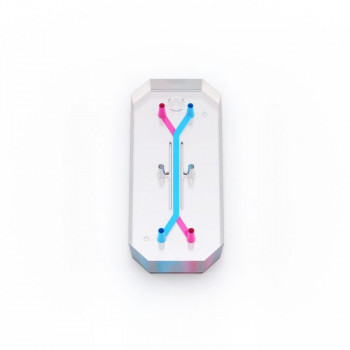Project
Development of a human placental artery-on-a-chip to study placental vascular function in reproductive toxicology and pregnancy diseases
| Primary Investigator: | Dr Teresa TROPEA University of Manchester |
| Co-investigators: | Dr Paul Brownbill University of Manchester |
| Dr Virginia Pensebene University of Leeds | |
| Funder: | Emulate/Organ-on-a-chip Network Proof-of-concept Award |
| Project dates: | 10-05-2021 to 10-06-2021 |
| Centre dates: | 18-10-2021 to 04-11-2021 |
Adequate fetoplacental blood flow is a major factor in fetal growth and development1. Increased
vascular resistance within the placental microvasculature, significantly impairs the fetoplacental
circulation and is associated with fetal growth restriction, a pregnancy pathology that affects up to 5–
10% of pregnancies2. The placenta is a non-innervated, low-resistance vascular organ, which relies
principally on paracrine signalling to regulate vascular tone and maintain an efficient maternal-fetal
exchange system for oxygen and nutrients3. An adverse in utero environment, caused by maternal or
placental diseases or xenobiotics, will compromise placental vascular function and fetal development,
thereby predisposing to long-term postnatal disease risk4.
Novel micro-physiology technologies, advancing beyond animal and ex vivo investigations, are
needed to evaluate how the maternal environment and xenobiotics affect placental vascular function.
In this study, we aim to:
1. Develop the first human fetoplacental artery-on-chip, a co-culture of endothelial (ECs) and smooth
muscle cells (SMCs) isolated from human placental resistance arteries.
2. Determine optimal conditions for co-culture of ECs and SMCs.
3. Assess cell metabolism (glucose, lactate) and paracrine crosstalk between SMCs and ECs under
flow conditions to recreate shear stress to evaluate calcium signalling and nitric oxide (NO) production.



